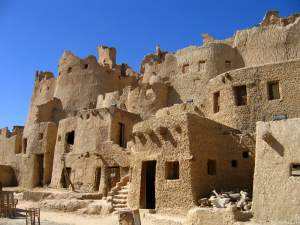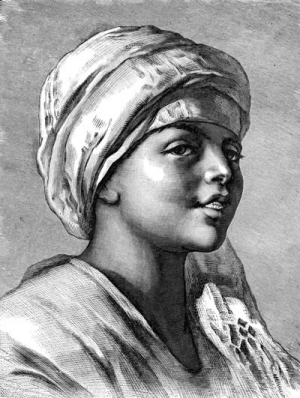(Boylove Documentary Sourcebook) - The "Zaggálah" Male Bachelor Laboring Class of the Siwans of Egypt: Difference between revisions
Added an internal link |
Modified the name of a category |
||
| Line 51: | Line 51: | ||
*[https://greek-love.com/near-east-north-africa/egypt/the-people-of-siwah-by-walter-cline <i>NOTES ON THE PEOPLE OF SIWAH</i> BY WALTER CLINE (Greek Love Through the Ages)] | *[https://greek-love.com/near-east-north-africa/egypt/the-people-of-siwah-by-walter-cline <i>NOTES ON THE PEOPLE OF SIWAH</i> BY WALTER CLINE (Greek Love Through the Ages)] | ||
[[Category:Boylove Sourcebook]] | [[Category:Boylove Documentary Sourcebook]] | ||
[[Category:Egypt]] | [[Category:Egypt]] | ||
[[Category:Ethnic groups]] | [[Category:Ethnic groups]] | ||
Revision as of 09:45, 24 May 2021

From Notes on the People of Siwah and El Garah in the Libyan Desert by Walter Cline, General Series in Anthropology (Menasha, Wisconsin: George Banta Publishing Company, 1936). Footnotes omitted.
The zaggalah – men and boys who work as servants, cultivate the soil, and band together for recreation – form the most clearly defined occupational class. When questioned as to membership in the zaggalah, my informant replied, “Whoever wants some fun.” But the zaggalah are usually unmarried. When asked why they do not marry, they answer, “We sleep in other men’s houses, and often must work in the groves at night, or labor far afield at Meraghi and other outlying gardens. How could we keep wives of our own?”
[...]
Cailliaud says that youths had to leave the main part of the town and lodge outside the walls as soon as they reached puberty, as did all men without wives, and did not again live in the town until they married. These bachelors and widowers might visit friends and relatives in town during the day, but should withdraw before sundown.
[...]
Besides working in the gardens, the zaggalah were the main fighting force, living near the main gate at the north of the town.
Their seclusion without women may have stimulated sodomy, a habit in which they all indulge. Though at present they have access to all neighbourhoods and to the numerous prostitutes, they still revel in pederasty, and often address their love-songs to boys. My Siwan informant told me that the Egyptian police forbid any young boy to enter the zaggalah club-house during a carousal, and that in former days the captain of the zaggalah kept his favourite boy beside him at the parties as a kind of mock-bride.
The zaggalah have summer-houses in the groves where they can frolic undisturbed.
[...]
All normal Siwan men and boys practice sodomy. I say “normal” advisedly, for the vice seldom connotes the effeminate manners and speech which often mark homosexuals in our own society. ‘Abdallah questioned sixty Siwan men and found that fifty-nine had been catamites. “The one who was not was brought up in Alexandria.” Among themselves the natives are not ashamed of this; they talk about it as openly as they talk about love of women, and many if not most of their fights arise from homosexual competition. Fear of the Government has lately made sodomy a more secret matter. If the officials find a boy under suspicious circumstances in a club-house of the zaggalah, they imprison the whole party.
My chief informant, when pressed for information about pederasty among his people refused again and again to give an exact account, but merely said, “There isn’t one man in Siwah; they are all women.” When asked to explain this, he replied, “Don’t you see that if man has done it when a boy, he has played the woman; and when he does it when a man, he is still playing the woman?”
I then inquired if Siwans ever perform a marriage ceremony between a man and a boy. He denied this.
When he saw that I already knew some of the details, he became more communicative. He said that men rent boys for five or ten piastres a night. Some fathers rejoice to have their sons earn money in this way, but in most cases the boy is prostituted by his mother.
Prominent men lend their sons to each other. All Siwans know the matings which have taken place among their sheikhs and their sheikhs’ sons. They say that the most influential sheikh of Siwa is impotent for women; and that he has often tried in vain to produce offspring by exciting himself with a boy in his wife’s bed, and then joining his wife for the orgasm.
Most of the boys used in sodomy are between twelve and fifteen years of age. Formerly the zagallah all had their boys, who kept company with them in the gardens, companions as well as objects of lust. In many but not in most cases the boy is the active rather than the passive agent. They call this ed dudah, “the worm”, because it feels like a worm in the rectum. A Siwan informed me that if a zaggali, desiring a certain boy, is troubled with priapism at night, he strikes his penis with a ball of camelthorns which he keeps at his bedside. The natives told me that sodomy was more prevalent long ago, because the boys were prettier.

See also
- Adult friend (dictionary)
- Age of attraction (dictionary)
- Boylove
- Ephebophilia
- Loved boy (dictionary)
- Minor-attracted person (dictionary)
- Pedophilia
- Situational homosexuality (dictionary)
- Young friend (dictionary)